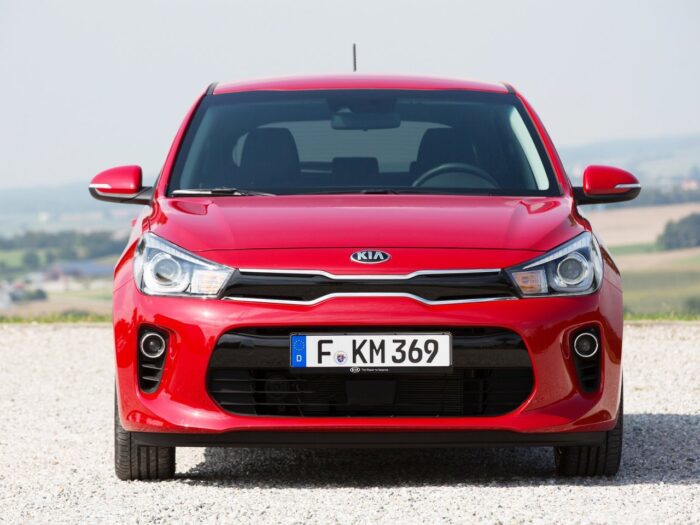In 2014, Hyundai introduced its innovative G4LC 1.4-liter 16-valve engine. Known for powering models from Rio 4 to Solaris 2 in our market, as well as i20, i30, Ceed, Stonic and Accent of the fifth generation in Europe, this efficient powertrain erases any doubts about giving you the necessary performance during your next trip and delivering a pleasant journey even on rugged terrain. Besides the G4LC engine, Hyundai has also incorporated Kappa lineup: G3LB, G3LC, G3LD, G3LE and G3LF; plus G4LA,G4LD and G4LE/F. With these offerings ensuring excellent performance while being sustainable at the same time – whichever model you choose with Hyundai’s advanced engines you are sure to enjoy an impressive ride.
Engine specifications for Hyundai G4LC 1.4 l
| Configuration | Inline |
| Number of cylinders | 4 |
| Number of valves | 16 |
| Displacement | 1368 cc |
| Cylinder diameter | 72 mm |
| Stroke | 84 mm |
| Power system | Distributor Injection System |
| Engine power | 100 hp |
| Torque | 133 Nm |
| Compression ratio | 10.5 |
| Fuel type | Regular |
| Euro class | EURO 5/6 |
Dry weight of the G4LC engine is 85.9 kg
The G4LC engine number is on the front of the box
Engine Hyundai G4LC 1.4 l Information
The 1.4-liter Kappa engine, which debuted in the i20’s second generation in 2014, set a new standard for modern engines. It features an advanced fuel injection system with an aluminum block and cast iron liners, as well as a sixteen-valve head with hydro-compensators and chain-driven timing. Furthermore, it boasts Dual CVVT phasor controls on both the intake and exhaust camshafts – allowing for precise control of engine performance – while a plastic inlet manifold and Variable Intake System provide further efficiency. This high level of engineering make the 1.4-liter Kappa engine a leader in its field.
The manufacturer recognized the difficulties that arose from their past models and thus, implemented oil injectors for piston cooling in their next G4LC engine model. To further optimize reliability, the exhaust manifold was also improved so that crumbs of the catalyst would no longer be able to enter cylinders, creating a sturdy and dependable system that can ensure longevity.
Fuel consumption G4LC
Using the 2018 Hyundai Solaris with manual transmission as an example (l/100km):
| City | 7.2 l |
| Highway | 4.8 l |
| Combined | 5.7 l |
What cars use the Hyundai G4LC
| Accent 5 (YC) | 2017 – … |
| Bayon 1 (BC3) | 2021 – … |
| Celesta 1 (ID) | 2017 – … |
| i20 2 (GB) | 2014 – 2018 |
| i30 1 (FD) | 2015 – 2017 |
| i30 2 (GD) | 2017 – … |
| Solaris 2 (HC) | 2017 – … |
| Ceed 2 (JD) | 2015 – 2018 |
| Ceed 3 (CD) | 2018 – … |
| Rio 4 (FB) | 2017 – … |
| Rio 4 (YB) | 2017 – … |
| Rio X-Line 1 (FB) | 2017 – … |
| Rio X 1 (FB) | 2020 – … |
| Pegas 1 (AB) | 2017 – … |
| Stonic 1 (YB) | 2017 – 2019 |

Reviews on the engine G4LC
Advantages:
- Simple and reliable motor design
- Is widespread in our market
- The use of gasoline AI-92 is allowed
- The hydro-compensators in the gasket are provided.
Disadvantages:
- Low power characteristics
- Fuel consumption increases with the mileage
- Fuel injectors are noisy under the hood
- This unit is quite vibration-loaded
Hyundai G4LC 1.4 l Maintenance intervals
| Interval | Every 15 000 km |
| Oil capacity | 3.7 l |
| Need to change | 3.3 l |
| Type of oil | 0W-30, 5W-30 |
| Timing Chain Type | Chain |
| Service life | not limited |
| In practice | 200 000 km |
| At breakage/trans-skip | Bending of valves |
| Регулировка каждые | not required |
| Adjustment principle | hydrocompensators |
| Oil filter | 15 000 km |
| Air filter | 45 000 km |
| Fuel filter | 60 000 km |
| Свечи зажигания | 75 000 km |
| Drive belt | 120 000 km |
| Coolant | 8 years or 120 000 km |

Problems & disadvantages of the engine G4LC
Despite its lightweight design, the G4FA engine’s lackluster lubrication and low power levels have caused numerous difficulties. Issues such as vibratory loading, noisy injectors, decreased water pump life-span and inconsistent coolant/oil leakage are widespread among users of this power unit online. It can also be noted that simple leaf chains do not last long with active drivers due to stretching – another common complaint amongst forums discussing oil compounding solutions for this model motor.
The manufacturer says the engine life is 180,000 km, but it usually lasts up to 300,000 km.
0 Comments